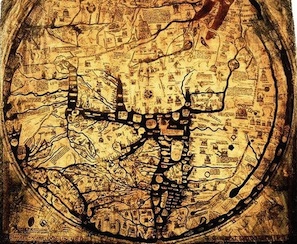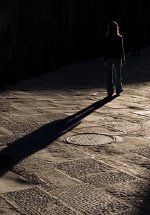 In her new paperback, “An Altar in the World,” bestselling author Barbara Brown Taylor writes:
In her new paperback, “An Altar in the World,” bestselling author Barbara Brown Taylor writes:
Popular religion focuses so hard on spiritual success that most of us do not know the first thing about the spiritual fruits of failure. When we fall ill, lose our jobs, wreck our marriages, or alienate our children, most of us are left alone to pick up the pieces. Even those of us who are ministered to by brave friends can find it hard to shake the shame of getting lost in our lives. And yet if someone asked us to pinpoint the times in our lives that changed us for the better, a lot of those times would be wilderness times.
Taylor eloquently describes periods in her life where she has lost her way: she set out to be married and ended up divorced, to live in New England and wound up in Georgia, and to preach to a congregation and care for their souls as a parish priest, but is a professor at Columbia Theological Seminary. And yet all of those detours bestowed generous gifts that she would have missed had the line between A and B been straight.
I have been practicing getting lost this Lent. 
On the road, I need no assistance, even with a GPS system. But in my work life, I did away with all the evaluations telling me what and how to write: the blog traffic reports that highlight which topics are more popular and the book reviews (and Amazon ranking status) educating me on how Beyond Blue is doing compared to the other books in the mental health market. I decided that for 40 days I didn’t want to know how my blog and book were doing and would rather wander aimlessly.
I didn’t stumble onto this Lenten resolution without some considerable pain, of course, just as I doubt you’d pull over your happy Honda on the way to work to ask a gas station attendant for the best way to get lost. No, one morning I was reading a meditation from Henri Nouwen’s “The Inner Voice of Love,” in which he writes:
When you get exhausted, frustrated, overwhelmed, or run down, your body is saying that you are doing things that are none of your business. God does not require of you what is beyond your ability, what leads you away from God, or what makes you depressed or sad. God wants you to live for others and to live that presence well. Doing so might include suffering, fatigue, and even moments of great physical and emotional pain, but none of this must ever pull you away from your deepest self and God.
I felt all of those things–exhausted, frustrated, overwhelmed, run down, and depressed–so I decided Lent is as good a time as any to ditch the map and venture toward virgin territory … to turn off the iPod blaring in my ears and try to better hear the voice of God in my life.
Taylor writes:
When the safety net has split, when the resources are gone, when the way ahead is not clear, the sudden exposure can be both frightening and revealing. We spend so much of our time protecting ourselves from this exposure that a weird kind of relief can result when we fail. To lie flat on the ground with the breath knocked out of you is to find a solid resting place. This is as low as you can go. You told yourself you would die if it ever came to this, but here you are. You cannot help yourself and yet you live.
Many of us depressives know that feeling all too well. Some experience the sensation almost regularly. It’s like our safety net is permanently split, so that we have to pacify the anxiety of being vulnerable–our insides hanging there exposed–on a continual basis … thus, the support groups, therapy, exercise, and so on. We know all too well how it feels to lie on the ground with the breath knocked out of us–quite literally in a panic attack–so we grab the paper bag and practice deep breathing until we reach a point of composure.
And yet there is so much wisdom in those moments. Like now, when I try to quiet all the static around me wanting to dictate what I do and how I do it and in how many minutes.
Why would you force yourself into the wilderness if you could hang out in your comfy sedan with your GPS loaded and ready to tell you how to get to your next destination? I suspect Taylor would say that you simply hear better in the desert. Because suddenly everything but the dog and the telephone become unimportant. She explains: “The telephone because it may allow you to call someone who loves you enough to come find you, and the dog to keep you company while you wait.”
For those control freaks among us … who rarely venture more than two miles from their homes because most trees look the same and roads are always changing names … practicing getting lost is a way to, according to Taylor, “gradually build the muscle necessary for radical trust,” and a good system to enforce priorities that we might not be able to do in any other way.

